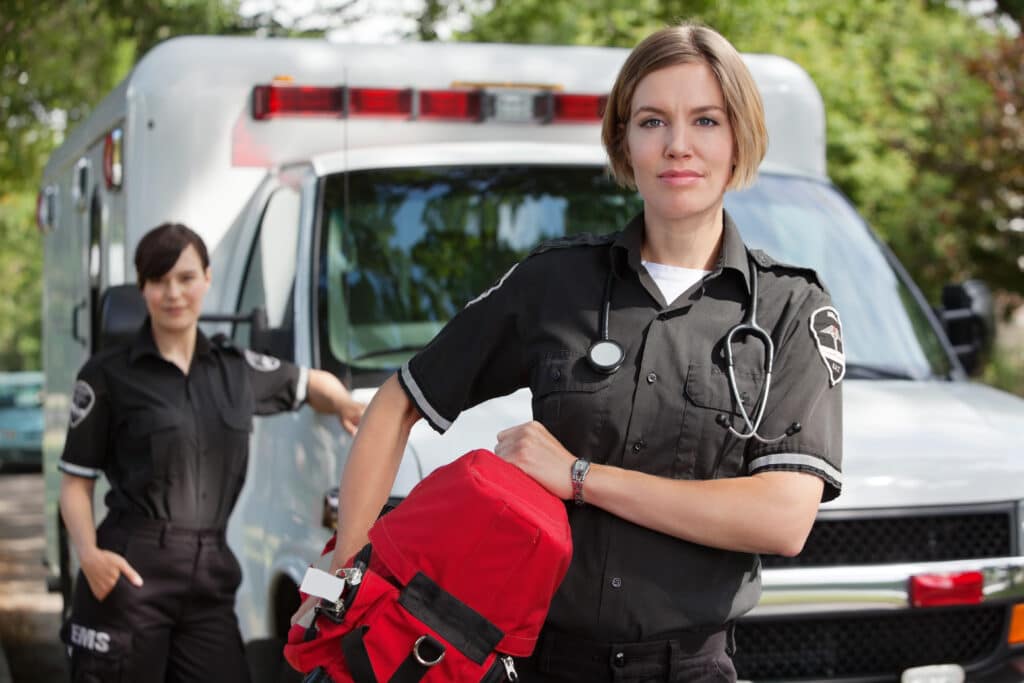Mental health issues are increasingly common among first responders. Studies show that 30% of first responders suffer from anxiety, depression, PTSD or substance abuse. While most people are aware of the prevalence of mental health issues in general populations, few realize how common it is for first responders as well. This can be especially true for those who have never worked as a first responder or lived with someone who does. But whether you’re a civilian spouse or friend, or relative of an officer—or even someone who has worked as a first responder yourself—this article will give you some insight into how these conditions impact lives and what you can do about them if one develops in your life.
Why Can First Responders Struggle With Mental Health
Typically, the first people on the scene to encounter difficult, hazardous, and taxing circumstances are first responders. Additionally, they are the first to reach out to disaster sufferers and offer them both physical and emotional help. Although these responsibilities are necessary for the entire community, they are taxing for first responders and, over time, increase their risk of trauma. The goals of this publication are to discuss the difficulties that first responders face both while performing their regular duties and in the wake of disasters, to provide more information on the dangers and negative effects of serving as a first responder on behavioral health (such as PTSD, stress, and depression), and to outline actions that can be taken to lessen these dangers either on an individual or institutional level.
Signs of Declining Mental Well-Being Among First Responders
Depression
Depression is a serious mental illness that affects an estimated 16 million Americans each year. The symptoms of depression can include sadness, hopelessness, anxiety, and worthlessness. Depression can affect anyone at any age, but it’s especially common among first responders who witness traumatic events on the job every day. If you or someone you know is struggling with depression, contact the Water Gap Wellness Center today. WGWC is an outpatient mental health treatment center near New Jersey that can help with high-quality care.
PTSD
PTSD is a mental health condition that can develop after experiencing a traumatic event. Symptoms include flashbacks, nightmares, and severe anxiety. PTSD can be treated with therapy and medication. It’s common among first responders–one study found that 68% of firefighters have experienced symptoms of PTSD at some point in their career.
Substance Abuse and Addiction
Addiction is a mental health issue that can have serious physical and emotional consequences. Addictions can affect your personal relationships, job performance, and physical health.
First responders are at a higher risk for substance abuse than the general population because of their exposure to traumatic events on the job. They also may be more likely to use drugs or alcohol as coping mechanisms for dealing with these traumatic experiences.
Depression, anxiety, PTSD and substance abuse are all serious issues for first responders.
First responders are more likely to develop depression, anxiety, PTSD, and substance abuse than the general population. In addition to the stress of their jobs, first responders often experience traumatic events on a regular basis and may be unable to access support services due to the stigma associated with mental health issues.
The nature of their work can cause mental health issues for first responders:
Stress: Working in an emergency setting can be stressful for anyone, especially those who have experienced trauma or burnout. The longer a person works in this environment, the higher their risk of developing a mental health condition such as depression or anxiety disorder.
Trauma: First responders may encounter traumatic events on a daily basis while responding to calls like car crashes or domestic violence incidents where they see people injured or killed. In addition to seeing these types of scenes regularly throughout your career as an EMT, you could potentially witness these same types of traumatic events during training scenarios involving simulated patients who act out specific scenarios based on real-life experiences provided by instructors who have worked as paramedics before becoming instructors themselves.
How Water Gap Wellness Center Can Help
We know that first responders are at risk for mental health issues and substance abuse. But this does not mean that you should be afraid of seeking help if you are experiencing these issues. It is important to remember that you’re not alone and there are many resources available to help you get back on track with your life.
At our Pennsylvania rehab facility, Water Gap Wellness Center provides highly tailored therapy for mental health and drug misuse. We are able to give you the proper care that meets your specific needs, thanks to our various levels of care.
Contact Water Gap Wellness Center today and learn more about how our Pennsylvania mental health treatment center can help you or a loved one today.




